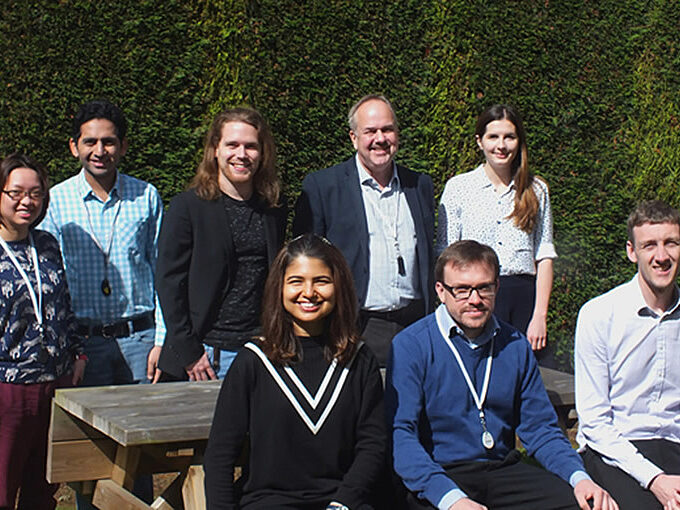Lucideon has welcomed five researchers from the Institute of Biomaterials, Friedrich Alexander University Erlangen – Nuremberg, Germany to its headquarters in Stoke-on-Trent, UK to develop new anti-bacterial materials
The five researchers, who under the supervision of Prof Aldo Boccaccini in Germany, are working with Lucideon staff members Drs Mark Cresswell, Phil Jackson and Chris Lovell to develop a range of materials with intrinsic anti-bacterial properties. The researchers are: Muhammad Maqbool (Substituted Hydroxyapatite), Agata Łapa (Bioactive Phosphate Glass), Seray Kaya (Bioactive Silica Glass), Lukas Gritsch (Bioresorbable Antibacterial Polyesters), and Binh Thi Thanh Phan (Biodegradable and Bioresorbable Polyester).

Lucideon is one of nine companies, clinics and universities involved in the HyMedPoly project “Drug-Free Antibacterial Hybrid Biopolymers for Medical Applications”, a collaboration training PhD researchers in the development of drug-free antibacterial materials used for medical applications, such as wound care and implants. The project is funded under the European Commission Marie Skłodowska-Curie Innovative Training Networks programme.
Stuart Maclachlan, head of research and development at Lucideon and the HyMedPoly project manager, said:
“It’s great to have the researchers at Lucideon and to see them settling into their projects. They’re learning new skills working with our materials development teams and they’re bringing a lot to the company too.
“HyMedPoly covers a vital area of research. Infection has become one of the toughest problems in the medical world. As bacteria become more resistant to drugs and there are fewer effective antibiotics, new materials with intrinsic antibacterial properties have an important role.”
Lucideon provides materials consultancy, testing and characterization and materials technologies to a wide range of industries. Its healthcare teams develop novel material technologies to combat issues facing the industry, including its proprietary encapsulation technology platform, iCRT. Lucideon has already worked closer with industry partners in developing antibacterial materials including an antimicrobial coating that has been applied to mobile devices for use in hospital environments.
The Institute of Biomaterials at the University of Erlangen-Nuremberg (FAU), Germany, is one of the nine institutes of the Department of Materials Science and Engineering at FAU, one of the largest materials science departments in Germany. The Institute of Biomaterials carries out cutting edge research in the broad field of biomedical materials for implants, tissue engineering and drug delivery, with emphasis on bioactive materials, e.g. bioactive glasses and composites, for 3D scaffolds and coatings for orthopaedic and cardiovascular applications. Research focuses also on new processing techniques for nanostructured biomaterials with antibacterial activity involving mesoporous particles.
HyMedPoly received funding from the European Union’s Horizon 2020 research and innovation programme under the Marie Skłodowska‐Curie grant agreement No 643050.
July 2017
